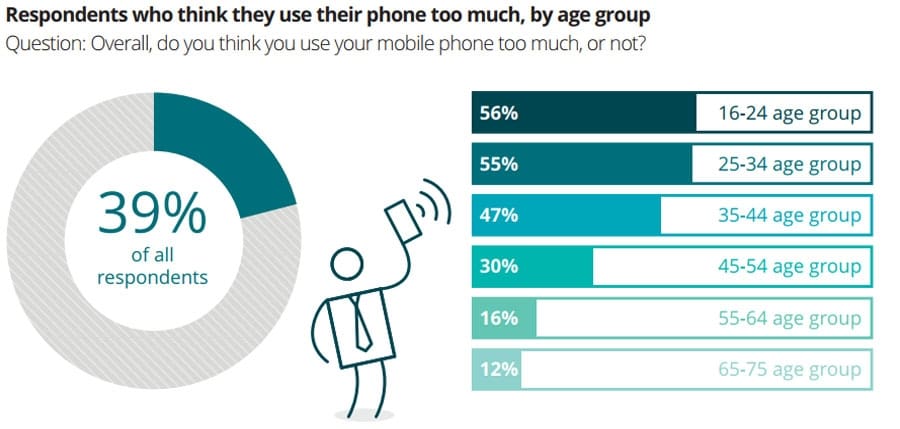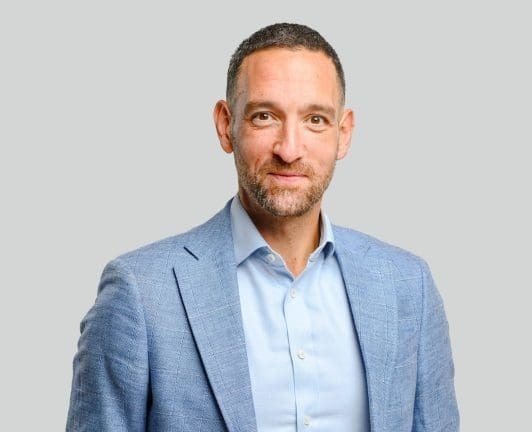What’s included?
- Introduction
- Why are people addicted to porn?
- Signs and symptoms of porn addiction
- How common is porn addiction?
- What is causing a rise in porn addiction?
- Which groups are most susceptible to porn addiction?
- How can Delamere help with porn addiction?
We’ve come a long way since the early “stag” films and striptease shows. Porn is now a multibillion-dollar industry accessible to men, women and even children. Since the dawn of the internet, access to sexually explicit content has become mainstream.
But what other factors are driving the obsession with porn? How many people are truly addicted, who are the most vulnerable groups and what can you do if you’re worried about porn addiction in yourself or a loved one? The experts at Delamere wellness retreat discuss.

Why are people addicted to porn?
All addictions have one thing in common: dopamine. That’s the hormone that makes us feel good. When a pleasurable activity produces it in substantial amounts this makes us want to repeat the behaviour. Hence, becoming addicted. Porn naturally delivers that high and we crave more. But there are also certain factors that make us more prone to addiction.
Genetics
People can be predisposed to impulsive, highly emotional or attention seeking behaviour. Anxiety and depression can make someone more vulnerable to porn addiction as the brain needs the dopamine to cope with negative feelings. Hormones can also come into play. For instance, excessive testosterone in puberty can drive risk taking activities.
Mental health problems
People who already suffer with anxiety and mental health disorders are more likely to develop addictions, including pornography addiction. Adverse Childhood Events (ACEs), such as abuse or neglect, can also contribute to porn seeking behaviours.
Social influence
Peers and friendship groups can make someone more likely to engage in watching porn. On the flipside, social isolation creates the perfect environment for porn addiction to flourish without prying eyes. A good social network is always key to overcoming addiction.
Signs and symptoms of porn addiction
- Excessively viewing porn to the detriment of yourself or others
- Prioritising porn over everyday activities
- Requiring an increasing amount of porn to remain stimulated
- Feeling stressed or depressed without access to porn
- Catastrophic consequences such as losing a job or relationship
- Compulsive masturbating
- Sexual dysfunction
- Consuming porn in risky situations e.g. at work

How common is porn addiction?
Firstly, let’s look at the definition. Porn addiction doesn’t have an official medical diagnosis as such but, as a subset of sex addiction, the World Health Organisation (WHO) classifies it as a mental health disorder. It can broadly be described as over obsessing about pornographic material to the extent that it negatively affects a person’s health, relationships, work, home, and social life.
So, just how common is it? Porn usage is prevalent. The world’s most popular porn website, PornHub, has an estimated 50 million registered users. In fact, it’s estimated that 2.5 million people in the UK visit porn sites every single second. But merely engaging in porn doesn’t necessarily mean you’re addicted. Porn can be a harmless part of a healthy sex life.
Dig a little deeper and the evidence is worrying. Earlier this year it was reported that the number of people watching porn has doubled since 2019. And one addiction treatment centre in London has seen 750 clients in six months – almost ten times more per month than before the pandemic.
- 5 to 8% of the world’s population is affected by porn addiction
- Addicted adults typically consume 11 to 12 hours per week
- The UK has the second highest PornHub traffic
- 90% of children age 8-16 have viewed porn
- 25% of search engine requests are for porn
What is causing a rise in porn addiction?
Addictions are often more prevalent when people are in a state of stress, entering the ‘fight or flight’ mode, or exposed to situations out of their control. It’s unsurprising, then, that the pandemic has been blamed for contributing to a rise in porn addiction.
Working from home
Working from home has fuelled an increase in porn use post-pandemic, as more people can access and view porn during office hours. The number of people seeking medical help for porn addiction has almost doubled since the pandemic with experts finding casual use has now become problematic.
The internet and social media
Before the internet, explicit material was only available via top-shelf magazines and dodgy DVDs. Now, it is everywhere. Many people are now addicted to porn due to its sheer availability. Mobile phones have made porn accessible 24/7 and social media sites that don’t restrict erotic materials, such as X (formerly Twitter), have removed barriers to viewing.

AI porn and online streaming platforms
One of the most worrying and dangerous developments is AI porn. While some claim it could help to reduce exploitation of women, a type of porn called ‘deep fake’ porn fuels stalker-like behaviour. This involves people superimposing faces onto bodies, often without consent. Payable online streaming platforms, such as OnlyFans, are also guilty of inciting porn addiction, with a record number of people getting hooked on its content.
Which groups are most susceptible to porn addiction?
There has always been a difference between the sexes regarding porn use. Studies show three times more men than women regularly watch porn. With disparities in consumption, it makes sense that more men seek treatment for porn addiction than women. Yet women still represent a significant cohort of people addicted to porn.
A worrying trend is the number of young people now exposed to, and regularly consuming porn. A survey by Common Sense Media revealed 73% of teens aged 13 to 17 had watched pornography online. This does not of course mean that they are addicted.
However, we do know that being male, young and novelty seeking with high internet use predisposes young people to develop porn addiction. A study by the charity Dignify in Hertfordshire, UK, found one in five students has a porn habit and one in ten said they felt addicted.
How can Delamere help with porn addiction?
We help people of all ages and backgrounds to overcome porn addiction at our wellness retreat in Cheshire. Set beside Delamere Forest, our purpose-built treatment facility has been specifically designed to provide the latest therapeutic approaches in a safe and supportive environment.
Our team of holistic therapists offer both one-to-one counselling and group therapy sessions using proven psychotherapies such as Cognitive Behavioural Therapy (CBT). They will help you to make sense of the reasons behind your addiction and formulate a future-proof plan to help you overcome your compulsion.

Many people find mindfulness is especially helpful in beating porn addiction. We offer a varied range of somatic healing practices, such as breathwork and grounding techniques which help to break the cycle of addictive behaviour. We will teach you the coping mechanisms to conquer porn addiction and move on with your life.
If you are concerned about porn addiction, call us confidentially to speak to a member of the team today. Contact Delamere






